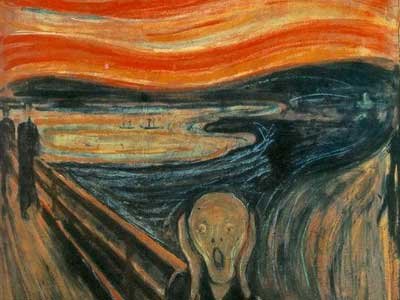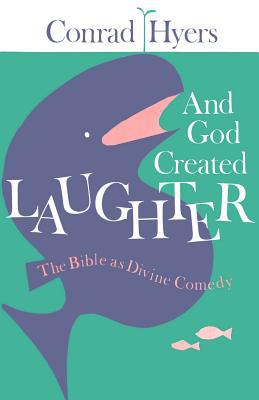
Photo: SHUTTERSTOCK
"Laughter," theologian Karl Barth reminded us, "is the closest thing to the grace of God."
“The most radical act anyone can commit is to be happy.”-Patch Adams
“A day without laughter is a day wasted.”– Charlie Chaplin
“Laughter is a bodily exercise, precious to health.”- Aristotle
“When it comes to relieving stress, more giggles and guffaws are just what the doctor ordered.”- Mayo Clinic
“There is little success where there is little laughter.”– Andrew Carnegie
“It helps us de-stress, lear, cope, transcend, recharge, renew, hope, optimize, enjoy, create, meditate, digest, exercise, connect, engage, energize, oxygenate, release, persist, and preserve. ”- Christa Scalies
In Praise of Laughter and Joy in these Dark and Uncertain Times
“Laughter is the sun that drives winter from the human face.”– Victor Hugo
“In the sweetness of friendship let there be laughter and sharing of pleasures. For in the dew of little things the
heart finds its morning and is refreshed.” Khalil Gibran

With my mother-in-law, Nancy, on her 90th Birthday.-Photo: Anne Mofid
‘I’m idealistic enough to suggest that if we think seriously about laughter and what it means,
we might even begin to save our planet.’-Charlotte Wood
'In these dark times, embracing laughter is an ethical choice'
An article by Charlotte Wood
‘Laughter has optimism embedded in it. It allows us to see that, while we are all human and we fail, we can change’
What a beautiful, optimistic and hopeful reading for any day of the week, but perhaps more so on a Sunday, a day of reflection, contemplation, peace, and I also very much hope, of joy and laughter, to build a better and happier life, and a better world.
N.B. Before I share Charlotte’s article with you, I must say why?
Because, laughter and joy, wishing to create a happier, fairer and better world, was amongst the first wishes and dreams I had, when I founded the GCGI in 2002.
This is why, I have written the following in all our conference programmes, public lectures, and more:
‘..., we invite you to share a common belief in the potential of each one of us to become self-directed, empowered, and active in defining this time in the world as opportunity for positive change and healing and for the true formation of a culture of peace by giving thanks, spreading joy, sharing love, seeing miracles, discovering goodness, embracing kindness, practicing patience, teaching tolerance, encouraging laughter, celebrating diversity, showing compassion, turning from hatred, practicing forgiveness, peacefully resolving conflicts, communicating non-violently, choosing happiness and enjoying life.’
And then, these went on to become the backbone of the GCGI Values.
Now reverting to Charlotte’s very interesting article:
In these dark times, embracing laughter is an ethical choice
‘Because we live in such very dark times, I’ve been thinking about laughter and art.
If you feel as I do, some days you’ll see no hope for humanity. We’ve destroyed much of the planet already and seem hellbent on continuing that destruction. People all over the world suffer unspeakable violence and deprivation. We in affluent countries seem unwilling to share our wealth with others, and we spend our time and money on pursuits that wreak ever more environmental destruction.
At the same time, those of us in wealthy nations suffer ever-rising levels of anxiety and depression. Australians have the second highest rate of antidepressant use in the world. What can simple laughter possibly do to counteract all of this?
It might seem a trivial thing to be talking about, when the world is in such trouble. You might expect that I’m about to advocate fiddling while our planet burns, urging you to enjoy a kind of nihilistic amusement at what we’ve done to ourselves. But nothing could be further from my mind. The embrace of laughter in our art and in ourselves is an ethical choice that we can and must make; I’m idealistic enough to suggest that if we think seriously about laughter and what it means, we might even begin to save our planet.’...Continue to read
Related reading:
Is the ‘Modern World’ depressing, lonely, fearful, hopeless and untrustworthy? These are some pertinent and timely questions

The Scream by Norwegian Expressionist artist Edvard Munch
“‘Obviously there’s a lot of good things about societal and technological progress and in a lot of ways our lives are much easier than, say, our grandparents’ or great-grandparents’ lives. But there’s a paradox here that we seem to have so much ease and relative economic prosperity compared to previous centuries, yet there’s this dissatisfaction, there’s this unhappiness, there are these mental health issues in terms of depression and anxiety.’”+
'The forces of psychological distress in our world are – currently – much wealthier and more active than the needed cures. We deserve tender pity for the price we have to pay for being born in modern times. But more hopefully, cures are now open to us individually and collectively if only we recognise, with sufficient clarity, the sources of our true anxieties and sorrows.’*
Continue to read: Goodness gracious me, What is going on? What is this ‘Modern World’ doing to us all?
In closing, I offer this quote from Conrad Hyers as a beautiful summary of this spiritual practice. "The first and last word belong to God and therefore not to death but life, not to sorrow but joy, not to weeping but laughter. For surely it is God who has the last laugh."
And God Created Laughter: The Bible as Divine Comedy
‘Recognizing "a playful spirit" as part of our human makeup, Conrad Hyers shows how laughter and humor are integral to our serious study of the Bible. With the darker realities of the Bible--sin, suffering, and death--there exists a lighter side--laughter, humor, and playfulness. Competent biblical study, Hyers explains, requires both perspectives. This highly readable, preachable, and teachable work gives ministers, students, and lay readers a valuable tool for recovering the spirit of humor and offers a chance to share in the celebration of life and the divine comedy of faith, hope, and love.’

